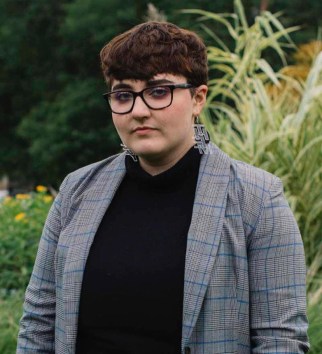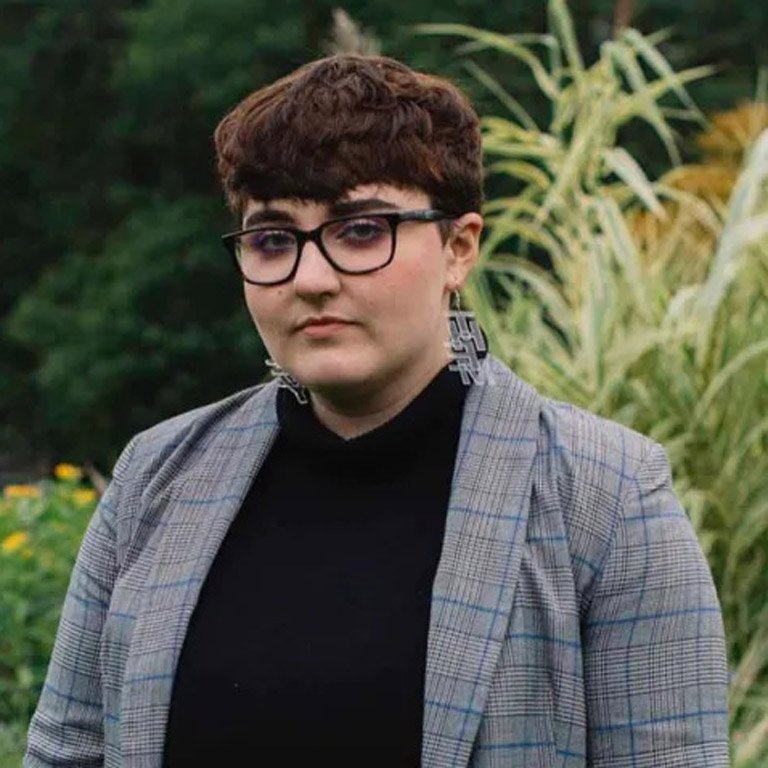By Jenni Holtz
@queerxoh
Cisgender people (a.k.a. people who are not transgender) have asked me quite a few times what makes a good ally. The word ally sometimes leaves a sour taste for me, a queer trans person. An ally can say they support the LGBTQ+ community but for some, that’s where the support ends. It is purely a title.
Allyship should be an ongoing practice of educating oneself and others, advocating for trans people, and showing support even when it is inconvenient and uncomfortable.
Here are some of the best and easiest ways to support transgender people
1. Share your pronouns
Put them in your social media bios and make a point to share them along with your name when you meet new people. For example, say “Hi I’m Joan and I use she and her pronouns. How about you?” This simple addition takes the pressure off of trans folks while also normalizing the practice of sharing pronouns. Pronouns should not be assumed based on someone’s outward appearance or name. The practice of sharing and asking for pronouns is useful even for people you may assume are cisgender. It also makes it clear to trans people that they are safe around you and that you respect them. While not every person will share their pronouns in response, asking in this way opens up the space for someone who wants their pronouns known to get to share them.
2. Put your money where your mouth is
Put your money where your mouth is and donate to GoFundMe pages that are for surgery and housing of trans folks. It’s wonderful to donate to trans organizations, but donating directly to GoFundMe pages for transgender people is a great way to ensure your money goes straight to the person in need. Trans people are disproportionately likely to experience homelessness, live under the poverty line, and face discrimination from healthcare providers; with rates even higher for Black trans people. Financial support is one of the best things you can do to help trans folks who are struggling. A quick search on Twitter or GoFundMe results in thousands of fundraising campaigns. As a place to start, I asked my transgender Twitter followers to share their fundraisers.
3. Do your own research
Avoid asking invasive questions, especially those about physical transition. If you’re worried that a question you have might be too personal, try to do some research first (see the end of this article for some places to start). After researching, if you decide to bring it up to the person, ask them if they’re okay sharing first. Try this: “I have a question I’d like to ask you that may be a very personal, so I understand if you don’t want to answer. Are you alright with me asking something personal?”
4. When you make a mistake, apologize
When you make a mistake, apologize, acknowledge the harm you caused, and correct the behavior. The best way to do this is to apologize in the moment. A quick “Sorry, I meant to say ‘they’” will do. Then, make an extra conscious effort to avoid repeating your mistake. Changed behavior is the best thing you can do after slipping up. A prolonged apology or overcompensating with excuses only puts additional emotional labour onto trans folks in a situation that has already harmed them. The focus should be on the feelings of the trans person. If you’re able, it’s very nice to check in one-on-one to ask if the person is feeling okay after the incident and acknowledging that you understand misgendering is a hurtful action. Approaching the issue in this manner gives the trans person a chance to share their feelings if they’d like while also showing the trans person that they are respected and safe in your presence. No ally is perfect — everyone will inevitably make mistakes— it’s all about holding yourself accountable and striving to continuously improve.

Jenni Holtz is a film critic, illustrator and master’s student in Media and Cinema Studies. They are a staff writer at In Their Own League and Flip Screen and have contributed to FilmEra and 14East Magazine. They are currently the staff illustrator and podcast host at 14East magazine. Their passions include transgender representation, genre cinema and cooking shows.




